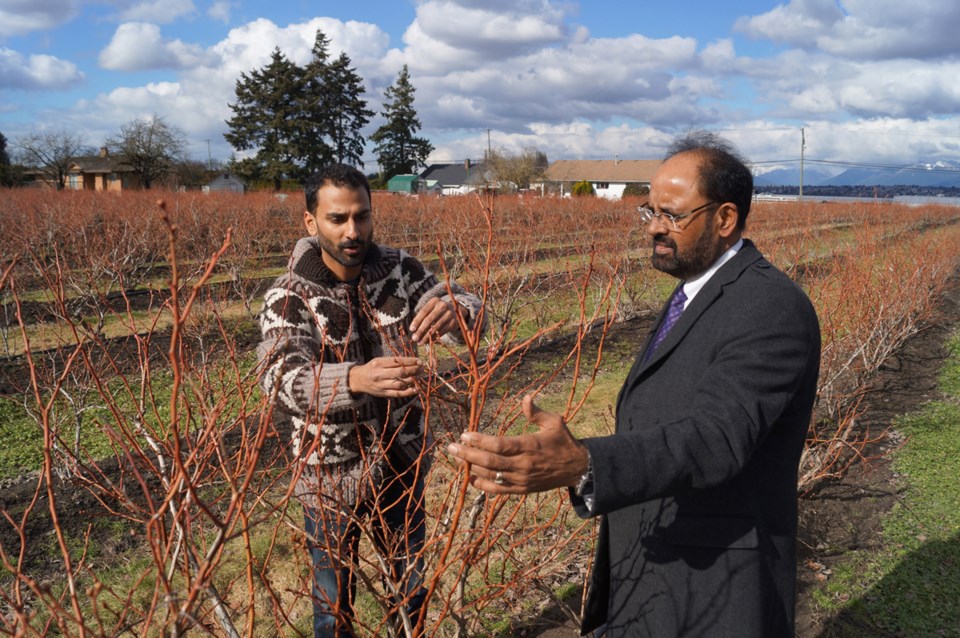Dear Editor,
Re: “Property rights clash with ‘city slicker’ council,” News, March 10.
With disbelief, I read the statements made by realtor Dale Badh and berry grower Ben Dhiman in the above article. Since when is Coun. Harold Steves a city slicker?
Badh is a well-known realtor and knows better than to make statements that the restrictions of home size and home plate size on agricultural land have to do with personal “property rights and respect for farmers at the forefront.”
He knows it is all about low agricultural taxes, including the mega houses that are situated on agricultural land. Every home owner’s property assessment lists the value of the land and the value of the building.
Both are not taxed at a separate rate, like some people want us to believe. Agricultural property values (land and houses) sit at about 10 per cent of regular taxes that you and I pay; this, according to my husband’s cousin, a lifelong farmer.
These low taxes and the presently almost unrestricted house sizes are the incentive for buyers to go after agricultural land. Every realtor knows that.
An acre of land may be valued for sale at $600,000, but it certainly is not taxed at this value. This pushes the prices further and further upward, making it unaffordable for anyone to really farm the land.
And that is at the crux of the issue. It opens the door for “Blueberry Hotels and Gaming Houses.”
Dhiman states “it comes down to what you need for your family and what you build for yourself.” Not really, because every property owner in Richmond has to abide by rules and regulations, by setbacks and home size restrictions. Farmers cannot be exempt just because they are farmers. We all live with restrictions.
Blueberries are an easy crop compared to labour intensive vegetable farming. This crop receives a multitude of applications of various chemicals. Blueberries grow well in peat soil.
But, if they are grown on our valuable Richmond clay soil, sawdust is added by many so-called farmers to acidify the soil.
This practice renders the soil useless for any other crop like potatoes carrots peas and beans. It breaks my heart when I see that. It takes millennia for the river to deposit fertile soil. It takes only hours to reverse its viability. This practice is a devaluation of the best soil. A real farmer would never ever do that.
The main issue of house size restrictions on agricultural land is about the preservation of farmland in Richmond. It’s not about a certain culture or cultural practices. It is not about what you want to build for yourself. It has nothing to do with respect for farmers.
It is about the agricultural land that is left over once the owner puts in the fill for the home site (home plate).
Precedents have been set by other municipalities, now it’s Richmond’s turn to act. This issue and public discussion is really about the future preservation of farmland in Richmond. That is what matters.
Erika Simm
Richmond



